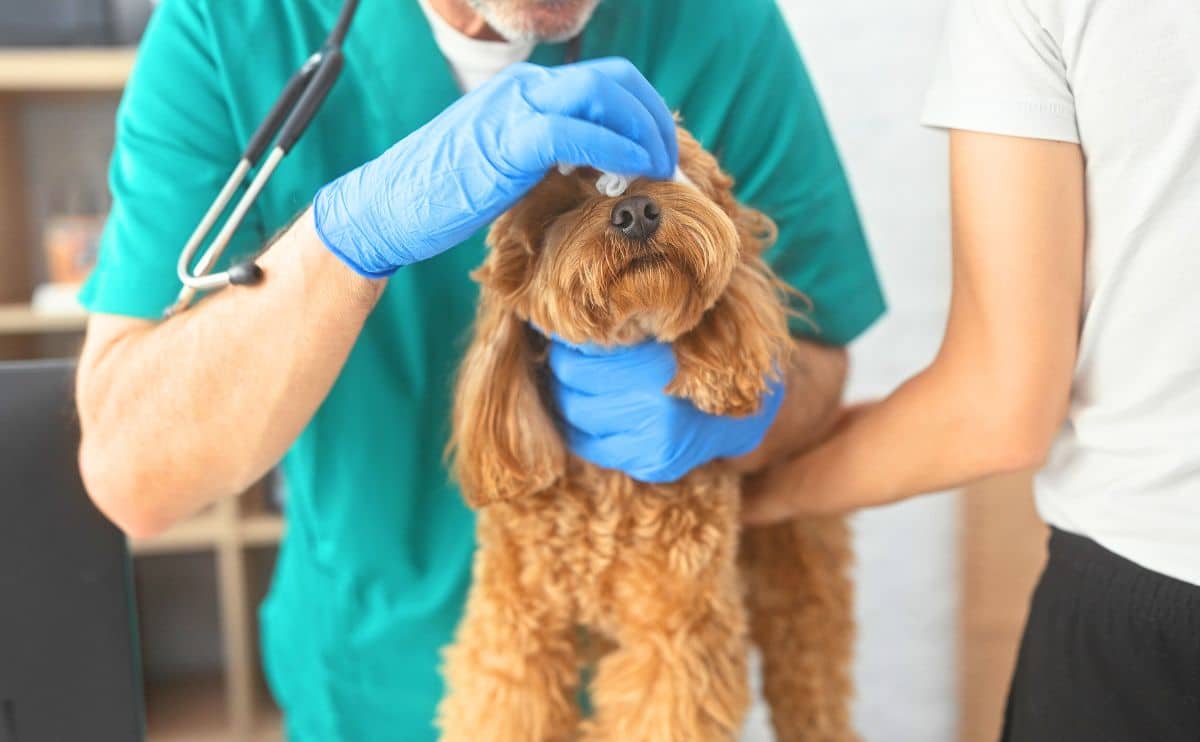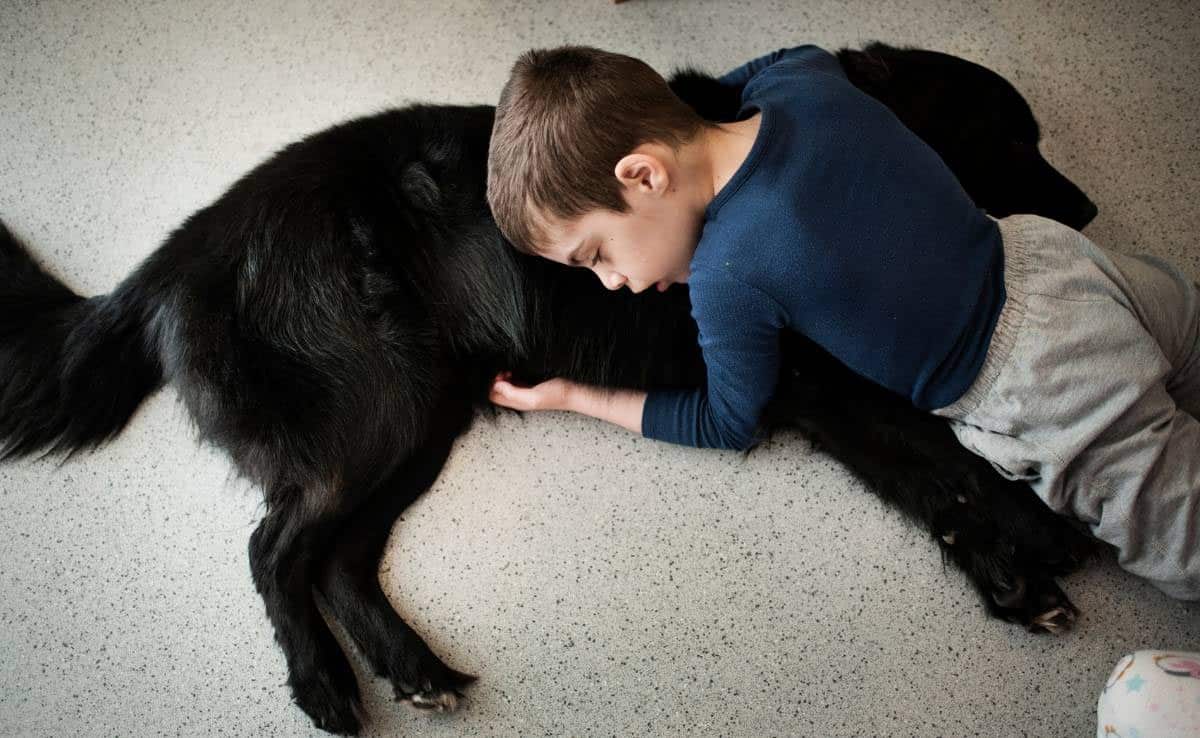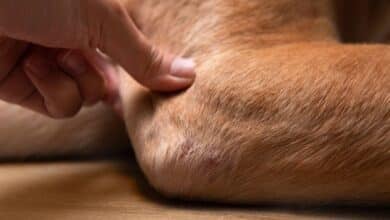10 Yorkie Health Issues Every Owner Should Know Before It’s Too Late
When you purchase through links on our site, we may earn a commission. Here’s how it works.
Yorkshire Terriers may be small, but the list of health concerns they face? Surprisingly long. From sneaky blood sugar drops to scary breathing issues, Yorkies come with a few high-maintenance quirks every owner should know.
Table of Contents
This quick guide breaks down the most common Yorkie health issues, including what to watch for, what’s normal, and when it’s time to call the vet.

Planning Ahead For Yorkie Vet Bills
Yorkies may be tiny, but their vet bills can be anything but. Pet insurance can help cover the cost of medical care and sometimes be the difference between picking the best care for your pet or simply what you can afford.
Generally speaking, pre-existing conditions are not covered, so getting covered for your Yorkie when they are a puppy will offer you the most benefit.
Learn more about pet insurance and what it covers in our is pet insurance worth it guide, as well as the specific providers that offer the best insurance coverage for Yorkshire Terriers. You can also use our free quote form below to see what your insurance might cost.
10 Common Yorkshire Terrier Health Issues
I asked Dr. Hannah Godfrey, BVetMed MRCVS, to explain a little about Yorkies’ health issues. With insight from Dr. Godfrey and thorough research, I’ve rounded up the 10 most common Yorkie health concerns.
Knowing the signs of each condition can help you catch problems early and get your pup the care they need. Hopefully, before things get serious. If you notice any symptoms, please don’t wait to contact your vet.
1. Hypoglycemia
Yorkies are prone to low blood sugar, also called hypoglycemia. Not only is low blood sugar common among Yorkshire Terriers, but it is also something all toy breeds are prone to. When a dog has hypoglycemia, they will have a very sudden drop in their blood sugar levels.
Hypoglycemia is particularly common in tiny Yorkie puppies. In many cases, puppies will outgrow this condition, but it can also affect some adult dogs. It is essential to recognize the signs of hypoglycemia in a puppy, as this condition requires quick medical treatment.
A sudden drop in a puppy’s or adult dog’s blood sugar can impact neurological function. Most simple cases of hypoglycemia occur after overexertion or going too long between meals. But it can also develop as a side effect of another condition, including Addison’s disease, tumors in the pancreas, liver disease, and other issues.
Diagnosis & Treatment
If your Yorkie shows signs of severe confusion, stupor, or collapse, administer sugar water or a glucose gel, such as Nutri-Cal, immediately. Just a few drops under the tongue can help. Always keep a glucose source handy, especially for toy breeds.
Mild cases may recover with oral glucose, but serious ones need emergency care and vet follow-up. Your veterinarian may run blood tests, a urinalysis, or even an ultrasound to check for underlying issues, such as diabetes or tumors. Managing the root cause is key to preventing future hypoglycemia.
A high-quality diet is crucial for Yorkshire Terriers because of their risk of hypoglycemia. Learn more about the best dog food for Yorkies.
2. Tracheal Collapse
Tracheal collapse is a progressive breathing issue common in toy breeds like Yorkies. It happens when the cartilage in the windpipe weakens, leading to a harsh, honking cough.
The cause of tracheal collapse is often genetic, and symptoms can be triggered by excitement, exercise, drinking water, or temperature changes, even without a fever.
Symptoms
- Respiratory difficulty
- Coughing when picked up or when pressure is applied on the neck
- Gagging, vomiting, or retching, along with coughing
- Unproductive coughing
- Turning blue
- Blue mucous membranes
Diagnosis & Treatment
To diagnose tracheal collapse, your vet will examine your Yorkie, review their history, and likely order chest X-rays or real-time imaging, such as fluoroscopy. Other tests may include a bronchoscopy, bloodwork, and a heartworm check.
Treatment usually involves medications like cough suppressants, steroids, or bronchodilators, plus lifestyle changes like weight management, switching to a harness, and avoiding anything that puts pressure on your dog’s neck.

According to Dr. Hannah Godfrey, BVetMed MRCVS, sometimes, the condition can be managed with anti-inflammatories and other medications when needed. But occasionally, a stent needs to be placed to keep the airway open.
3. Diabetes
Yorkies are more prone to diabetes than most other dog breeds. The condition means they cannot regulate their sugar metabolism and need daily insulin injections to maintain proper levels.
It can be hard to identify and diagnose diabetes at first, as some of the symptoms look like other diseases. It often overlaps with other conditions, such as liver disease, hypothyroidism, and kidney issues.
Diabetes is a serious condition, and Yorkies are genetically prone to it. But, with proper treatment, they can live long, very fulfilled lives.
Symptoms
- Increased urination
- Excessive thirst
- Uncontrollable appetite
- Losing weight
- Sweet-smelling breath
- Cloudy eyes and poor vision
- Dull skin and coat
- Tired and stiff
- Disinterest in normal activities
Diagnosis & Treatment
Diagnosing diabetes in your Yorkie involves a physical exam, blood work, and a urinalysis to confirm the condition and check for other issues. If diagnosed, treatment includes daily insulin injections at mealtimes, a consistent, healthy diet, and regular monitoring of blood sugar levels to keep your pup stable.
Questions About Pet Insurance & Diabetes?
Learn more about pet insurance and whether it covers diabetes and insulin in our in-depth article.
4. Heart Disease
Unfortunately, Yorkshire terriers are susceptible to heart disease. In particular, a condition called patent ductus arteriosus (PDA) can affect them.
PDA occurs when a small blood vessel of the heart does not close properly, disrupting blood flow between the two parts. Too much blood gets to the lungs, causing fluid buildup and strain.
Heart failure is one of the leading causes of death for Yorkies, especially in their senior years. Yorkies often develop heart valve disease, also called mitral valve disease. This is often indicated by a heart murmur.
Symptoms
- Heart murmur
- Persistent coughing
- Respiratory difficulty
- Weight loss
- Diarrhea
- Fatigue or lethargy
- Intolerance to physical activity
- Blue or gray gums
- Collapse
Diagnosis & Treatment
Diagnosing heart disease in your Yorkie starts with a physical exam to check for murmurs, abnormal rhythms, or fluid in the lungs. Your vet may also run tests like X-rays, an ECG, an echocardiogram, or heartworm screening.

If needed, they might refer you to a canine cardiologist. Treatment depends on the cause and may include medications, surgery (like a pacemaker or valve repair), weight management, and diet changes to support heart function.
5. Luxating Patella
Patellar luxation, also called luxating patella or, in more familiar terms, kneecap dislocation, is quite common in smaller breeds like the adorable Yorkie. This condition occurs when the kneecap becomes loose and starts to slip out of its normal placement.
The movement prevents a dog’s knee from properly extending and can impact their mobility. When the kneecap slips back into place, they walk normally.
This condition can cause stiffness and ranges in severity. It can happen to dogs of any size or breed, but it has a genetic connection. Dr. Godfrey adds, “If your dog is affected, you might notice them taking an occasional skip on their hind leg when they walk or run.”
Symptoms
- Hopping
- Skipping
- Walking on three legs
- Stiff legs and gait
Diagnosis & Treatment
Luxating patella is diagnosed through a physical exam and X-rays, with advanced imaging like a CT or MRI if needed. Mild cases may only need weight management, joint supplements, and occasional pain relief. In more serious cases, vets may recommend surgery or physical rehab to prevent lameness.
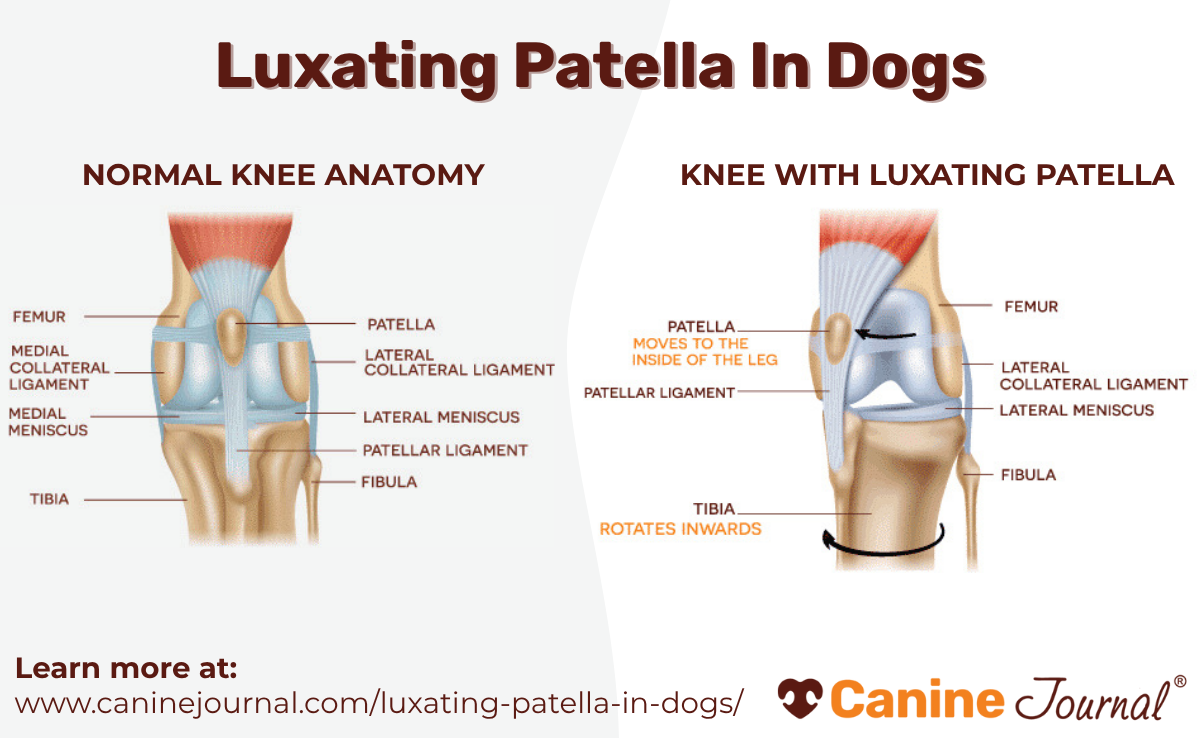
6. Bladder Stones
Bladder stones are another condition that Yorkies tend to have an increased risk of developing. Also known as uroliths, bladder stones can develop from bladder and urinary tract infections, often caused by bacteria.
Struvite crystals build up and become very painful, and impact your pup’s ability to urinate. These make up the majority of canine bladder stones. However, dogs can also develop calcium oxalate stones. These are the ones that most commonly affect Yorkies.
Symptoms
- Increasing urination frequency with little output
- Increased thirst
- Difficulty or straining when urinating
- Urination accidents inside the home
- Blood in urine
- Vomiting
- Excessive licking in private areas
- Abdominal pain
Diagnosis & Treatment
If your Yorkie has bloody urine or can’t urinate, call your vet, as it’s an emergency and could be a sign of bladder stones. Diagnosis may include X-rays, blood and urine tests, and sometimes an ultrasound.
Treatment depends on the stone type and severity, and may involve diet changes, pain meds, or surgical/non-surgical removal. Struvite stones can sometimes dissolve with diet, but calcium oxalate stones usually require intervention.
7. Hemorrhagic Gastroenteritis
Hemorrhagic gastroenteritis is a disease that has no known cause. It often affects small-breed dogs. It is a very serious medical condition in which dogs present with a sudden onset of bloody diarrhea. This often appears like raspberry jam and can be accompanied by vomiting.
This condition requires immediate treatment as it can cause life-threatening dehydration and shock. If you suspect your dog has this condition, seeking emergency veterinary care is best.
Symptoms
- Dehydration
- Lethargy
- Poor appetite
- Vomiting
- Abdominal pain
- Fever
- Depression
- Large amounts of bright red diarrhea
Diagnosis & Treatment
Hemorrhagic gastroenteritis (HGE) is diagnosed based on your Yorkie’s symptoms, exam, and possibly blood and urine tests. Treatment focuses on managing symptoms, usually with IV fluids to prevent dehydration.
In severe cases, dogs may need steroids or a blood transfusion. During recovery, food and water are reintroduced slowly to allow the gut to heal.
8. Dental Disease
Smaller breeds are prone to dental issues and periodontal disease, and Yorkies are no exception. Smaller breeds have very crowded and often misplaced teeth, which leads to a multitude of oral health issues.
These can include bad breath, tartar buildup, tooth decay, swollen gums, and more. Periodontal disease can cause serious problems and even take years off your dog’s life. Not only that, it can cause pain, as well as impact a dog’s overall health.
Symptoms
- Swollen and bleeding gums
- Loss of teeth
- Bad breath
- Plaque and tartar buildup
- Difficulty eating and chewing
- Excessive drooling
- Loose and missing teeth
Diagnosis & Treatment
Your veterinarian will perform an exam on your dog’s mouth and teeth and then provide treatment as needed. This may include deep cleaning or even removal of teeth if they are infected or broken. Your pup may also need medication to manage pain.
The best kind of treatment for dental problems is prevention, so your veterinarian will likely recommend regular teeth cleaning, both at home and professionally. Additionally, dietary changes can help with bad breath and boost oral health.

Dr. Godfrey also states that “Yorkies are also prone to dental disease because they have a lot of teeth in such a small space, they often prefer soft food, and they may be more resistant to tooth brushing.”
9. Liver Problems
Yorkshire Terriers have a very high risk of developing a liver disorder called portosystemic shunt (PSS). They are one of the breeds at most risk of developing this condition. PSS is a genetic condition that affects the blood supply to the liver.
Liver disease is a big concern for this little breed, as they are at elevated risk for developing multiple types. Your pup will need treatment and regular monitoring to keep them as healthy as possible.
Symptoms
- Vomiting
- Diarrhea
- Increase in thirst
- Loss of appetite
- Weight loss
- Behavior changes, high irritability, depression
- Lethargy
- Jaundice
- Blood in the urine or feces
Diagnosis & Treatment
To diagnose liver disease, your vet will do a physical exam, blood work, a urinalysis, and possibly imaging like X-rays or an ultrasound. In severe cases, a liver biopsy may be needed.
Treatment focuses on managing symptoms and the underlying cause, which may include medication, antibiotics, fluid therapy, or surgery. Long-term care often involves switching to a liver-supportive diet.
10. Eye Health
Sadly, Yorkies are at risk of inheriting a number of eye health concerns. While not all are serious, some can lead to blindness if they are not treated promptly, so it’s important to keep this in mind.
These eye conditions include cataracts, cherry eye, corneal abrasions, conjunctivitis, corneal ulcerations, distichiasis, ectopic cilia, progressive retinal atrophy (PRA), retinal dysplasia, and chronic dry eye.
Cataracts are the leading cause of blindness in senior Yorkies, and many dogs also suffer from dry eye, also known as keratoconjunctivitis sicca (KCS). This condition can be quite painful and cause your pup’s eyes to be sore, itchy, and dry.
Symptoms
- Frequent blinking
- Thick yellow or green discharge
- Squinting
- Excessive tearing
- Light sensitivity
- Rubbing on their eyes
- Pain
- Watery or red eyes
Diagnosis & Treatment
Eye issues in Yorkies are diagnosed through a thorough exam and, if needed, additional tests. Treatment depends on the condition and may include eye drops, antibiotics, medication, or protective collars. Some Yorkies may need lifelong use of artificial tears to manage chronic eye problems.

Other Health Conditions That Affect Yorkies
I’ve covered some of the most prevalent health conditions and diseases Yorkies are at risk for. However, I have not covered all of them. Because they are small, these dogs are also prone to fracturing bones, Legg–Calvé–Perthes disease, allergies, bone and joint health issues, obesity, and parasitic infection, just to name a few.
DNA testing can provide additional insights into your Yorkie’s health, though it doesn’t cover every condition yet. Curious about how it works? Check out our in-depth guide to at-home dog DNA tests.
Average Cost For Yorkie Health Issues
Treating your Yorkie’s health issues can become extremely expensive. Along with the initial costs, some of these medical conditions can develop and be costly to treat. For example, a collapsed trachea can cost between a few hundred and $5,000 to treat, and patellar luxation can run over $1,200.
According to Fetch Pet Insurance, the three most common Yorkie health concerns parents file claims for are oral inflammation, walking abnormality, and liver disorder. Associated costs for these health problems over a lifetime are as follows:
- Oral inflammation: $1,330 to $1,954
- Walking abnormality: $2,591 to $3,429
- Liver disorder: $2,793 to $4,380
Fetch Customer Testimonial For Yorkie
I am pleased to have chosen Fetch as our pet insurance for my little Yorkie, Ruthie, for many reasons. She has medical complications I’ve never experienced with other dogs. Having this insurance has given me peace of mind to financially move forward in the care she needs for her condition.
It has been easy to submit paid invoices and the doctor’s notes online on the Fetch website. Fetch lets me know it’s received, and I can speak to a person if I choose. The insurance payment goes directly into my bank account.
The turnaround time from submitting a medical claim to receiving funds is timely. I switched my other Yorkie from a different pet insurance company to Fetch. Fetch has been one of the best decisions I’ve made for my dogs.
– Barbara H., Fetch customer
Keeping Your Yorkie Healthy
Keeping a Yorkie healthy is no small job, even if they are. These tiny pups come with big personalities and a higher risk for certain medical issues, so staying proactive is key.
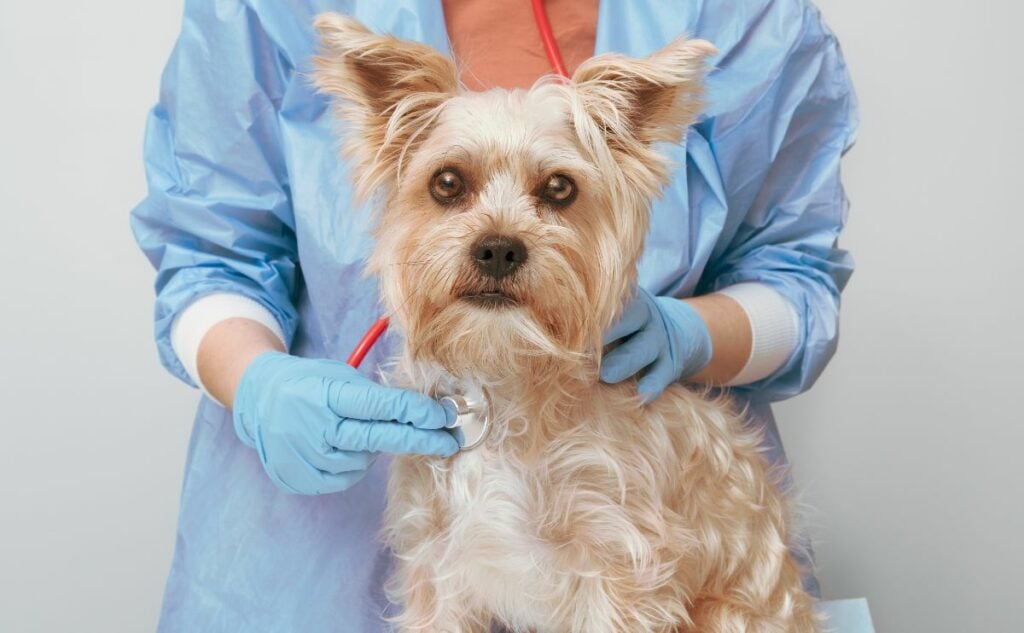
That means more than just puppy checkups. Routine vet visits, a well-balanced diet tailored to their size and age, and daily exercise all play a big role. Whether it’s choosing the right food or making time for regular play, every little step helps your Yorkie live a longer, healthier life.
Dr. Godfrey adds:
To keep your Yorkie as healthy as possible, it’s best to keep them up to date with vaccinations and parasite control treatment, watch out for any limping, skipping, or mobility problems, and brush their teeth regularly.
If they’ll eat it, feeding dry food rather than soft food will be helpful to maintain their tooth health for longer, but without toothbrushing, most dogs require veterinary dental treatment at some point in their lives.
FAQs About Yorkie Health Problems
I’m sure there are still plenty of questions unanswered about health conditions that impact the adorable Yorkshire terrier. I’ve covered a few of the most often asked Yorkie health questions below, but if I didn’t get to yours, let me know in the comments.
Is It Common For Yorkies To Have Stomach Issues?
Yes, Yorkshire Terriers often develop stomach issues. They can develop food sensitivities, allergies, pancreatitis, diarrhea, and more. Adding a bit of pumpkin puree or sweet potatoes to your dog’s diet can help with some of these digestive issues and promote healthy bowel movements.
What Is The Lifespan Of A Yorkie?
Yorkies live between 13 and 16 years on average. Learn more in our article on the Yorkie’s lifespan and the factors that affect how long they can live.
What Is The Most Common Cause Of Death In Yorkies?
Heart failure is one of the most common causes of death for the breed. Because of this, it is important to pay attention to your pup’s health and keep up with preventive appointments.
What Age Is Considered Old For A Yorkie?
Yorkies are considered senior dogs between seven and eight years old. Generally, a Yorkie between eight and ten years old is a senior and needs senior dog food, as well as possible supplements and activity modification to accommodate their changing body and needs.
Need Gear For Your Yorkie Pup?
Our team here at Canine Journal has spent a significant amount of time researching the adorable Yorkshire Terrier. You can learn more about the breed as well as what they need, including the best brushes for Yorkies, the best crates for Yorkies, and the best Yorkie dog beds.
If you want more information, check out our Yorkie growth chart, which will walk you through your Yorkie’s first year of life, including important growth and development milestones.
Have a Yorkie Story to Share? Has your pup dealt with any of these Yorkie health problems? Whether it was a scary diagnosis or a sweet recovery moment, we want to hear it! Drop your Yorkie story in the comments to help other dog parents feel a little less alone.

